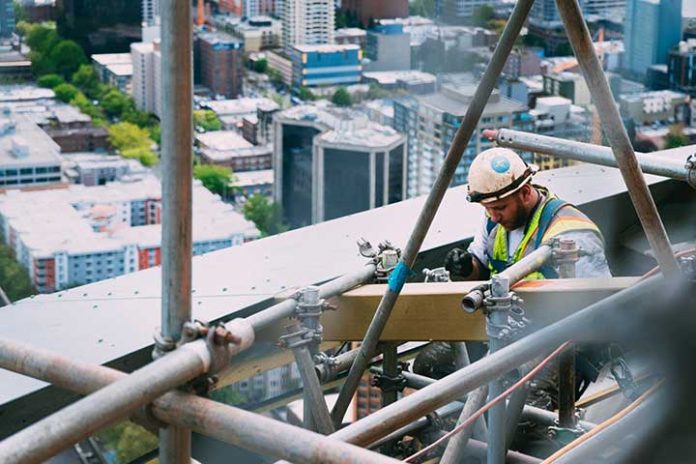Over time, injuries on construction sites have decreased due to better regulations and standards. Safety is always a top priority for property developers, site managers, and contractors. But more needs to be done to improve safety. In the U.S., for example, construction fatalities account for about half of all work-related deaths. However, the sector is persistently looking for new ways in which safety can be improved, either by adopting new working practises or by introducing new technologies.
“This is where wearable technologies are starting to have a major positive effect on construction site safety, and is only set to increase,” said Jamie Johnson, CEO of FJP Investment. “Smart technology is cropping everywhere and is quickly becoming indispensable to modern day living and working.” The future of smart wearable technologies that are improving safety on construction sites includes things like:
- Smart watches
- Smart boots
- Smart helmets
- Smart glasses
- Smart body wear
Table of Contents
Smart watches
Features:
- It detects falls and sends alerts
- Monitor health and activity
- It allows for hand-free communication
Smart watches have been around for a little while now, and most are familiar with some version of them. The construction sector has seen the usefulness of this technology for the safety features that they offer onsite workers.
Sensors in the device can detect falls, which is a particular concern and hazard for construction workers. When a fall has been detected, the device will immediately send out an alert to the relevant safety personnel, significantly reducing the time that the injured person is able to receive medical assistance.
Smart watches can also constantly monitor the health and activity of workers by keeping an eye on their vital signs such as heart rate and can even, with the upgraded models, monitor SPO2 oxygen levels and heart rhythms. To guard against overexertion, they can also monitor the number of steps the worker is taking. Designs on the drawing board include the capability of monitoring moods and mental health.
Smart watches also offer hands-free capability, so workers can still do things like operate machinery without having to worry about the watch at the same time.
Smart boots
Features:
- Location detection
- Pressure sensors
- Self-charging
By installing location technology in the boots that is even better than GPS, this allows for the accurate whereabouts of workers at any given time. This is useful for monitoring lone workers and ensuring that they are not spending too much time in particular hazard-filled parts of the site.
By sensing small shocks or falls, pressure sensors that are in the heel of the boot can automatically send out alerts for help. The sensors can also detect if the wearer is potentially carrying too much weight, which could cause injury.
The smart boots are self-charging, which is done with the worker walking about, ensuring that they are kept charged all the time that they are working.
Smart Helmets
Features:
- Wake alerts
- Proximity sensors
- Fatigue monitoring
Smart helmets can monitor and evaluate brain waves to detect the early signs of “microsleeping,” a phenomenon that is especially hazardous on construction sites. Even a slight momentary lapse in concentration could be fatal.
Proximity sensors located all around the site, in the helmet, machinery, and other equipment, can alert contractors and machine operators of a potential collision hazard. This is like adding hundreds of pairs of extra eyes on site.
Sensors monitoring the vital signs of the wearer can detect if the worker is feeling fatigued, a sign that a break may be needed. Patterns of constant fatigue could even potentially highlight a chronic condition that may need medical attention or other health issues.
Smart glasses
Features:
- Leading edges
- Detecting dangerous materials
- Visual safety information
Safety glasses have long been a part of the PPE on construction sites, protecting the wearer’s eyes against dust, sparks, and other detritus, but smart glasses are taking safety to a whole new level. These devices, which utilise augmented reality (AR) technology, provide real time vital safety information to wearers, such as safety information and hazard materials.
As already mentioned, falls and trips are a major concern on construction sites, and AR technology can provide the wearer with real time information on where leading edges are located as they move around the site, greatly enhancing onsite safety.
Safety information can be displayed on the lenses, making sure that workers are apprised of any relevant safety protocols as they carry out their tasks on site.
Smart body wear
Features include:
- Monitoring heat
- Detecting gas
- Muscle power assistance
Wearable sensors can detect core body temperature and alert to overheating, something that’s useful for hot and humid weather conditions. These sensors, which can be worn around the arm or chest, will also be useful in other working conditions like factories or steelworks.
Wearable sensors can also detect noxious gases, the proverbial equivalent of the canary in the coal mine, but for construction sites.
Finally, exoskeletons can be worn to help with manual labour and heavy lifting. If you have seen the movie Aliens, starring Sigourney Weaver, you will have an idea of what this technology is about.

